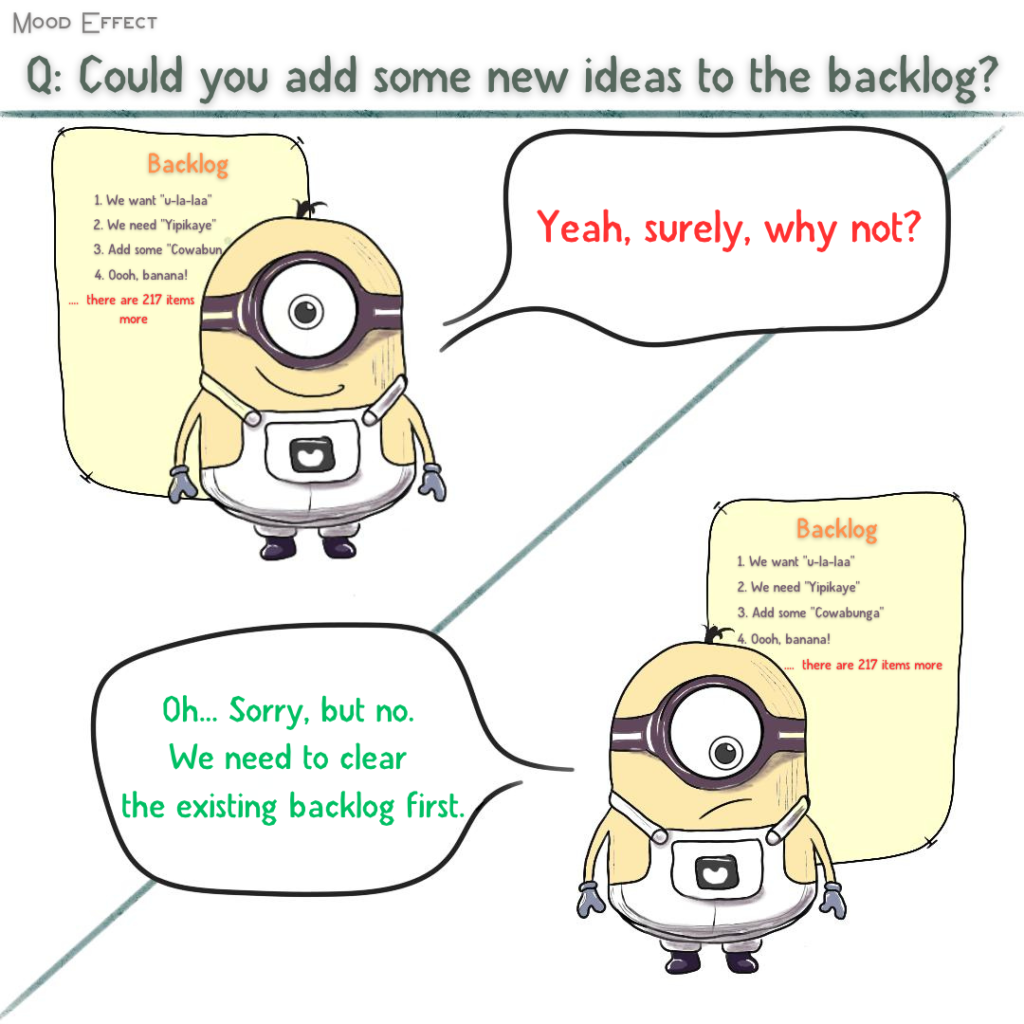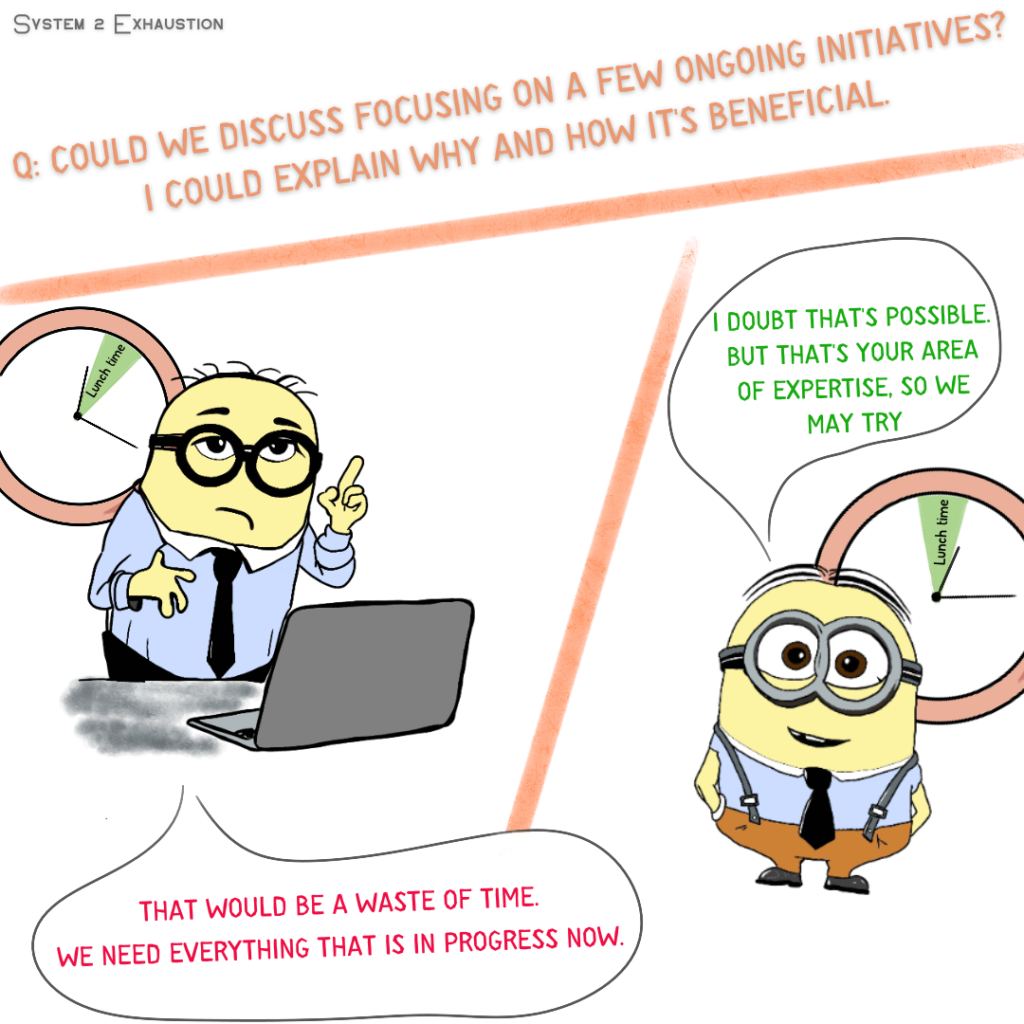Here, I’ll cover two topics from D. Kahneman’s book “Thinking, Fast and Slow,” which are like two sides of a coin.
📣 RESUME
Remember to ask powerful questions about reasons and results when participants are in obviously high spirits or mentally exhausted.
WHY?

1️⃣ Mood Effect
When we’re in a good mood, it’s basically because life is going well. Our mind shifts to energy-saving mode, trusting our senses and intuition and switching of a deep analysis of the situation (it’s like driving on an empty road vs driving on a crowded speedway). As a Scrum Master, it’s tempting to capitalize on stakeholders’ good mood for quick buy-ins, but hastily made decisions may not endure (does that happen often to you, that stakeholders change their mind?). We must ensure decisions are deliberate – for me that’s an obvious part of openness and transparency.
2️⃣ Analytical Thinking Exhaustion
Our analytical thinking also becomes lazy when exhausted. We tend to make default decisions or stick to habits. For example, research made in Israel showed, that judges making parole decisions were more negative right before the lunches (probably because positive resolutions require breaking the status quo). After the lunch breaks, positive resolutions were increasing by 65%. That’s impressive, right?

📌 So, it appears to me that as Scrum Masters, during periods of our or our collaborators’ visibly good mood, we need to keep in mind that at those moments we tend to:
👉 Easily go for big experiments without considering risks (DevTeam)
👉 Easily buy into new ideas without evaluating current focuses (PO)
👉 Easily approve additional resources or changes to MVP/project scope without considering impacts on timeline and budget (PO, client, managers)
👉 Give feedback without actually thinking about the subject (stakeholders)
👉 Agree without understanding true engagement
👉 Go for any kind of easy acceptance or “default answer”
📌 …and we should keep in mind, that after a series of meetings, powerful events, long workweek or just before the lunch, enabling critical thinking needs real internal power and additionally to tendencies of “mood effect” at those moments we tend also to:
👉 Move on with the decisions which do not meet internal resistance, rather than thinking of counterintuitive solutions
👉 Keep status quo (avoid changes)
👉 Just agree with everything
❗So, remember to ask powerful questions about reasons and results when some of the participants are in obviously high spirits or mentally exhausted. And don’t forget, that there is a right and wrong time for every kind of conversation 😁
